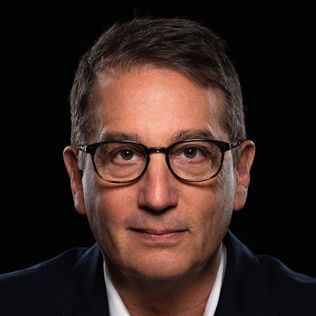Stop Losing Patients! The Most Powerful Way to Build Loyalty & Trust
Aug 14, 2025Lessons from Stephen Covey and “The Speed of Trust”
One of my favorite books was written close to 50 years ago by Stephen Covey, called The 7 Habits of Highly Effective People. In his book, he talks about seven habits that are important personally, interpersonally, and for renewal—such as “sharpening the saw,” making sure to rest and take care of yourself.
The habit I use most in my dentistry is “Begin with the end in mind.” When we’re treatment planning, I always figure out where we’re going first. Often, that’s not the case for others—sometimes treatment moves forward without thinking about the end goal.
Stephen Covey’s son also wrote a very important book called The Speed of Trust. Written about 15 years ago, it emphasizes that the most important ingredient for success in both business and life—because they’re the same—is trust.
Why Trust Speeds Everything Up
The book is called The Speed of Trust because when trust exists in relationships, things move quickly. If people don’t trust each other, nothing moves forward, and we reach an impasse.
This is true even in world conflicts that have lasted for thousands of years—often because two groups sharing the same geographic area don’t trust each other.
When trust is present in a relationship—whether marital, business, doctor-patient, or friendship—life becomes easier. You’re not worried about what the other person will do because you trust them. Without trust, problems arise: financial, emotional, interpersonal, sexual, and more.
Trust in Professional Partnerships
I have a partner, Raymon, and we’ve been working together for over 12 years. Our successful partnership comes from complete trust. When we disagree, we approach each other with that foundation. I know he has integrity, keeps his word, and acts consistently—and I strive to do the same.
Because of this trust, in 12 years we’ve had only two fights, both lasting just 90 seconds and resolving quickly.
Building Trust with Patients
So how does this apply to dentistry or medicine? When patients come to see us, they often don’t trust us—they’re full of fear. Fear exists because they don’t understand what will happen and can’t control it.
Trust begins long before I meet the patient: when they call the office, when they walk in. Is the office clean and neat? Does it smell pleasant? Is the staff friendly? Are they greeted by name, offered a drink, and made comfortable?
These small signs matter. By the time I meet the patient, I want them to feel at ease. I sit knee-to-knee, eye-to-eye, and ask, “How can I help you?” In that moment, it’s about them—not me.
The Power of Presence
Too often, doctors think about themselves. I recall visiting my insurance agent, Timothy Russell, whose family has run their Southport business for three generations. Walking in feels like stepping into the 1950s—warm, personal, familiar.
During a recent visit, Timothy said, “Excuse me a second. I’m going to put my back to you,” before turning to his computer. It struck me—how often do doctors do this without asking? When you physically turn away, trust erodes because the patient feels you’re no longer present.
When a patient trusts you, they’ll usually follow your recommendations because they believe it’s in their best interest. Unfortunately, doctor-patient relationships today are often fragmented, and trust has diminished.
How to Restore Patient Trust
I believe the most important thing is to slow down, be present, and meet patients where they are. I don’t come in with an agenda—they do. My role is to listen, understand, and offer solutions in their best interest.
Many friends tell me I talk too much to patients, but that’s intentional. I won’t take phone calls or check emails during appointments—unless there’s an emergency. In that moment, the patient is my only priority.
Choosing Integrity Over Profit: The “Hans Moment”
In my first year of practice, a patient named Hans came in needing periodontal surgery. After scaling and root planing, he still had deep pockets. He asked if it needed to be done that year, as his insurance benefits were used up.
I was in significant debt and had the time and financial incentive to recommend immediate surgery. But the truth was his teeth would not fall out if we waited, as long as he kept up with cleanings.
I told him we could wait until the next year. Two months later, Hans died of a massive heart attack at age 46. I often think about how I would have felt if I had pushed for surgery, violated his trust, and he passed away shortly after.
That moment—the “Hans moment”—was a fork in the road. It taught me to always try to do the right thing, even under financial pressure. I don’t always succeed—being human means making mistakes—but I strive to act with integrity because it shapes the future for the better.
Trust and Integrity as the Foundation
Most of what I do is built on trust and integrity. Being there for patients improves our lives inside and outside the office. It’s also a good business decision to be a good person—something many overlook while focusing on short-term gains.
Long-term planning and doing things the right way have allowed me to surpass even my 30-year career goals. As the Buddhist expression says, “How you do anything is how you do everything.”
So, be present, act with integrity, and remember—be the gift.



